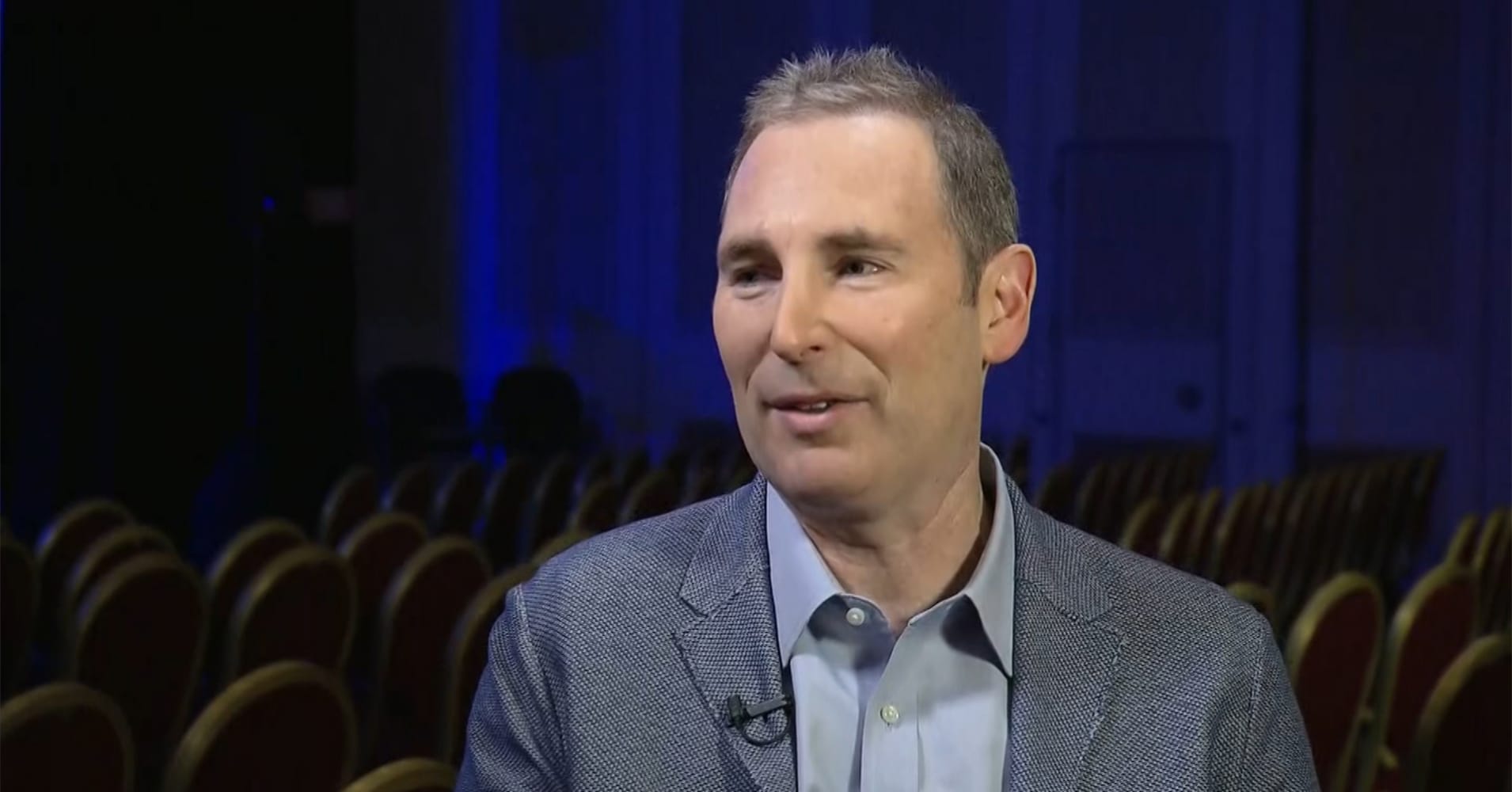
Marc Benioff reiterated a familiar refrain this week after Salesforce's earnings report, telling CNBC's Jim Cramer that his company "remains the fastest-growing enterprise software company of all time."
But he's wrong.
Amazon Web Services, with $6.7 billion in quarterly revenue, is about twice the size of Salesforce, which on Tuesday reported fiscal third-quarter sales of $3.4 billion. AWS was created inside Amazon in 2006, about seven years after Benioff co-founded Salesforce.
Benioff isn't completely off the mark. Among independent software companies, Salesforce did reach $10 billion in annual sales faster than any of its predecessors. If it can meet Benioff's prediction of reaching $20 billion by 2022, it will be the quickest to that mark as well.
But AWS could surpass $70 billion that year, according to a Nov. 28 report from Jefferies.
AWS had the luxury of growing up inside a big public company that was already beloved on Wall Street, while Benioff started Salesforce with seed capital, then funded it with venture money before turning to the public markets.
But that was then. AWS is now the profit engine behind its parent. As the company made abundantly clear at its annual re:Invent conference this week, its growth ambitions should have legacy technology vendors very much on edge.
More than 50,000 attendees swarmed onto the Las Vegas Strip for five days of keynotes, breakout sessions, demos and developer training sessions. Another 100,000 streamed parts of the conference online.
AWS took off in its early years by providing remote servers that any start-up or developer could use to launch a website or project. As companies became more dependent on AWS' core computing and storage offerings, Amazon started rolling out adjacent products like databases, a content delivery network and a data warehouse service, and then began upgrading its products so they could be used in highly regulated industries like banking and health care.
Amazon now offers 140 services, which a growing number of businesses use to run all of their core computing.
It's not stopping with cloud infrastructure, either.
AWS said this week that it has developed its own chips for artificial intelligence projects, following Google into the silicon for AI market. And Amazon said it will soon start bringing its technology into other companies' facilities with branded hardware, stepping into the physical data center world of Cisco, Dell and Hewlett Packard Enterprise.
"A key theme that emerged as we spoke to many users and partners of AWS is that while competition is increasing, AWS' continuous focus on newer products, services, and depth of features sets it apart," wrote Ronald Josey, an analyst at JMP Securities, in a report on Thursday. "The announcements this week confirm this view."
On Wednesday, Brent Thill, an analyst at Jefferies wrote in a note to clients that, "AWS Cloud momentum was evident with 3+ days still left in the conference."
Thill, who recommends buying Amazon shares, estimates that based on potential 2022 revenue of $71 billion, AWS could be worth $350 billion on its own, a market value that today is higher than all but eight U.S. companies, including Amazon. Salesforce currently has a market capitalization of $107 billion after a 40 percent rally this year.
Investors shouldn't be looking to a potential AWS spinoff, however. The $2.1 billion of operating profit the unit generated in the latest quarter accounted for 56 percent of Amazon's total operating earnings, providing significant cash for CEO Jeff Bezos to pour into other lower-margin areas.
AWS CEO Andy Jassy told CNBC's Jon Fortt this week, "I'll never say never about anything," but "we don't have any plans on the horizon" to leave Amazon.
"Usually companies will spin off groups if they just for some reason don't want them on their books or if that new unit needs access to capital that it can't get by being part of the broader company," Jassy said. "Amazon has been so just incredibly generous about funding AWS so aggressively over the 15 years we've been working on this that there's really been no need for additional capital."
Even if Salesforce isn't as big as AWS or growing as quickly, the company is still on a tear and rewarding investors handsomely.
On Wednesday, Salesforce reported 26 percent growth for the quarter, topping analysts' estimates for sales and profit. Just as AWS is winning business from companies that are pushing their infrastructure to the cloud, Salesforce's momentum is coming from companies turning to the cloud and mobile devices for applications used by salespeople, marketers and service departments.
Salesforce itself is a big AWS customer, committing in 2016 to spending $400 million over four years on Amazon's cloud platform. In September the two companies expanded their partnership to make it easier for customers to use more Salesforce applications on AWS.
"We have a fantastic partnership with AWS," a Salesforce spokesperson said in an emailed statement. The combination of Amazon's cloud service and Salesforce's customer relationship management software delivers "great value and benefits to our mutual customers," the statement said.
Salesforce also partners with Google's cloud, and Benioff said on the earnings call this week that both companies have "phenomenal cloud offerings."
There's plenty of headroom remaining for AWS and Salesforce. Gartner estimates IT spending will reach $3.7 trillion in 2018, with public cloud spending only accounting for $186.4 billion of that amount.
0 Comments